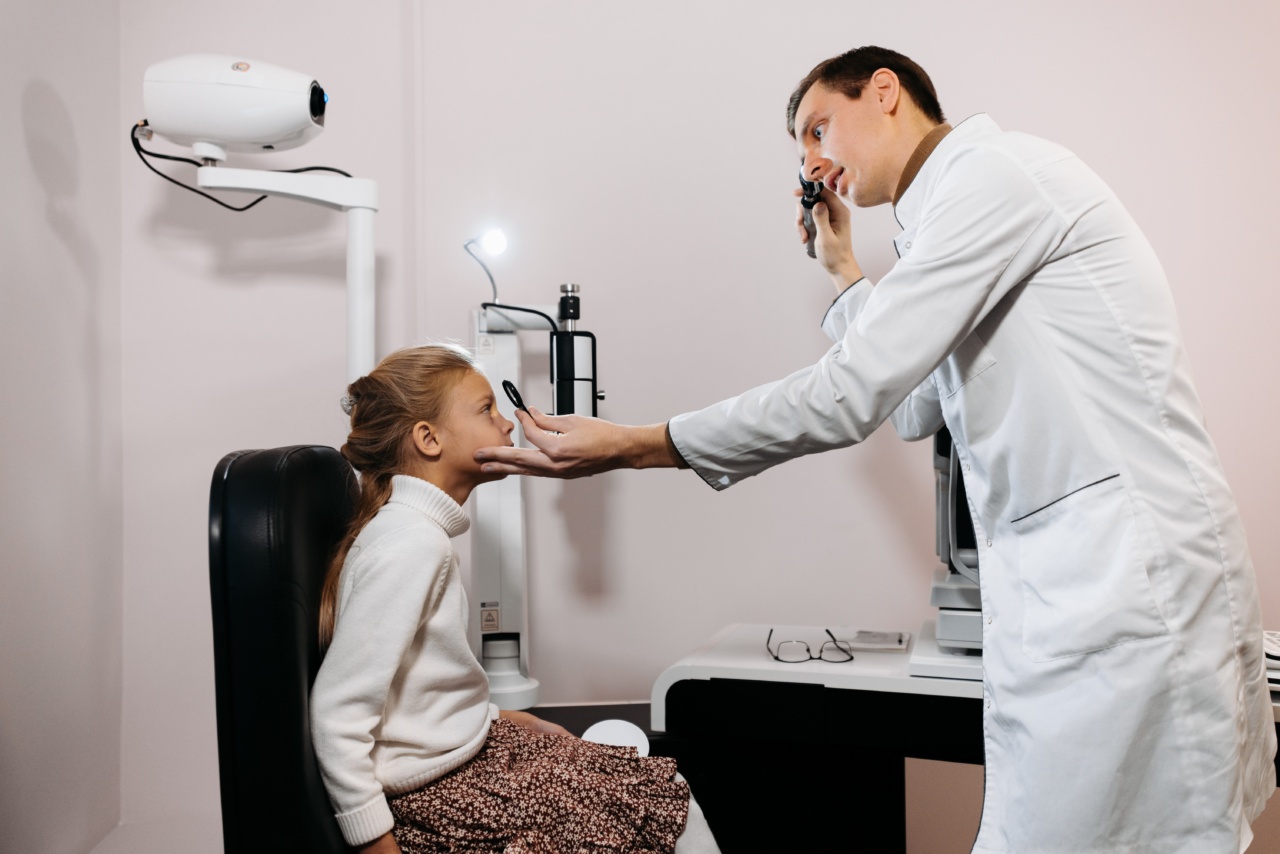While many people prioritize regular visits to dentists or general physicians, one crucial healthcare professional often gets overlooked—an ophthalmologist.
Our eyes are not only windows to the world but also intricate organs that require specialized care. Neglecting their health can lead to a range of diseases and conditions that may remain covert until it’s too late.
In this article, we explore the covert malady that necessitates an ophthalmologist’s examination and why scheduling regular visits to an eye specialist is essential for overall well-being.
The Importance of Regular Eye Examinations
Eye examinations are not an area to be overlooked when it comes to monitoring our health. Often, people associate eye exams solely with the need for a prescription for glasses or contact lenses.
However, the reality is that comprehensive eye examinations go far beyond addressing blurry vision. They serve as a crucial preventive measure and allow ophthalmologists to detect several debilitating eye diseases, some of which have no noticeable symptoms in their early stages.
Glaucoma: The Silent Thief of Sight
One of the most critical covert maladies addressed by ophthalmologists is glaucoma. Glaucoma is a group of eye conditions that damage the optic nerve, which transmits visual information to the brain.
This damage is often caused by abnormally high pressure within the eye, and the condition is often referred to as the “silent thief of sight” due to its subtle progression.
Without regular eye examinations, glaucoma can remain undiagnosed until it reaches an advanced stage, causing irreparable vision loss.
By the time symptoms become noticeable to the individual, the damage may already be severe, highlighting the need for a visit to an ophthalmologist well before any symptoms manifest.
Macular Degeneration: A Growing Concern
Another covert malady that necessitates an ophthalmologist’s examination is macular degeneration. This condition affects the macula, which is responsible for central vision.
Macular degeneration is a leading cause of vision loss among older adults, and its early stages often go unnoticed.
Regular eye exams are crucial in detecting this condition early on, as prompt intervention can help slow down or prevent further vision loss.
Catching macular degeneration in its covert stages provides a higher likelihood of successful treatment and management.
Diabetic Retinopathy: Hidden Consequences of Diabetes
Diabetic retinopathy is a diabetic complication that affects the eyes. It occurs when uncontrolled blood sugar levels cause damage to the blood vessels in the retina.
Similar to glaucoma and macular degeneration, diabetic retinopathy may not present any noticeable symptoms until significant damage has occurred.
Ophthalmologists play a vital role in managing this covert malady by monitoring the health of the retina and providing appropriate treatment options.
Early detection and intervention can significantly reduce the risk of vision loss in individuals with diabetes.
Cataracts: The Clouding of Vision
Cataracts are a common age-related eye condition characterized by the clouding of the lens, resulting in blurred vision.
While cataracts are not considered covert in the sense that symptoms become evident, regular visits to an ophthalmologist are necessary to monitor their progression and determine the appropriate time for cataract surgery.
An ophthalmologist can assess the impact of cataracts on visual acuity and provide guidance on managing symptoms until surgical intervention is required.
Early diagnosis of cataracts allows individuals to plan and prepare for the surgery, ensuring a smooth transition to clearer vision.
Retinal Detachment: A Sight-threatening Emergency
Retinal detachment is a serious and sight-threatening condition that occurs when the retina detaches from the underlying tissue.
While not as covert as some other conditions discussed, the prompt diagnosis and intervention of retinal detachment are of utmost importance to prevent permanent vision loss.
Regular visits to an ophthalmologist allow for a timely diagnosis of retinal detachment and increase the chances of successful reattachment or repair.
Ignoring symptoms or delaying examination can exacerbate the condition and lead to irrevocable vision impairment.
Other Covert Eye Conditions
In addition to the aforementioned maladies, there are several other covert eye conditions that necessitate an ophthalmologist’s examination. These include but are not limited to:.
1. Dry Eye Syndrome:
Dry eye syndrome is a common condition that occurs when the eyes don’t produce enough tears or the tears evaporate quickly. Regular examinations help diagnose and manage this often uncomfortable and chronic condition effectively.
2. Amblyopia (Lazy Eye):
Amblyopia, commonly known as lazy eye, is a visual disorder that typically occurs in childhood. Early detection and intervention are essential for successful treatment, as it becomes increasingly challenging to correct lazy eye in adulthood.
3. Strabismus (Crossed Eyes):
Strabismus is a condition characterized by the misalignment of the eyes, resulting in them pointing in different directions. Prompt treatment is crucial in childhood, as it helps prevent permanent vision impairment and ensures proper eye teaming.
4. Conjunctivitis (Pink Eye):
A common and highly contagious eye infection, conjunctivitis, requires diagnosis and treatment by an ophthalmologist to prevent its spread and minimize discomfort.
5. Retinoblastoma:
Retinoblastoma is a rare form of eye cancer that primarily affects young children. Early detection significantly improves the prognosis and treatment outcomes, making regular visits to an ophthalmologist critical for young children’s eye health.
Conclusion
Your eyes are an invaluable asset, and their health deserves regular attention. Neglecting ophthalmologist examinations can lead to the covert advancement of various eye conditions, resulting in irreversible vision loss.
Glaucoma, macular degeneration, diabetic retinopathy, cataracts, retinal detachment, and other eye maladies require timely intervention for optimal outcomes.
By prioritizing regular visits to an ophthalmologist, we safeguard both our vision and overall well-being.
Remember, the covert malady that necessitates an ophthalmologist’s examination may be silently progressing within your eyes, making regular eye check-ups an essential part of your healthcare routine.

























